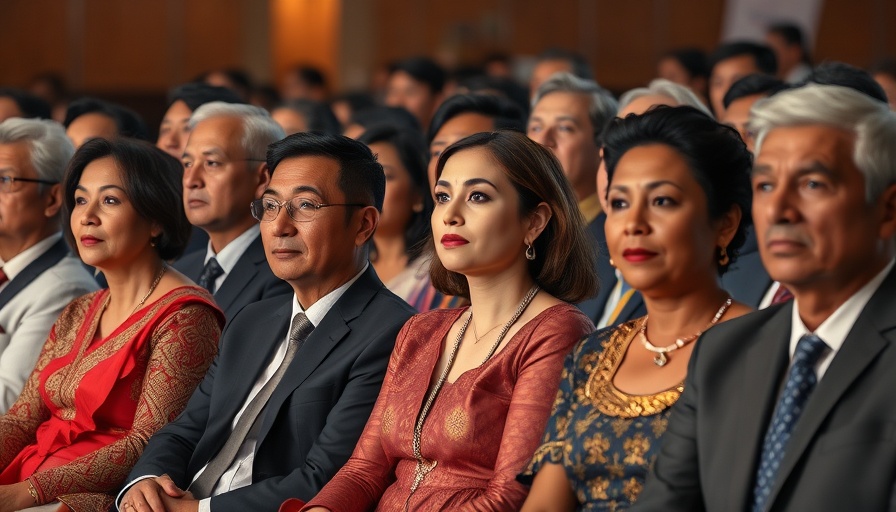
A Young Man's Courage in the Face of Corruption
On June 15, 2025, a significant chapter in the fight against corruption was etched in history as Floribert Bwana Chui Bin Kositi was beatified by the Vatican in a ceremony held at St. Paul Outside the Walls Basilica in Rome. This momentous event has become an emblem of hope, especially for the youth in the Democratic Republic of the Congo (DRC), a nation grappling with rampant corruption.
At just 26 years old, Kositi made the ultimate sacrifice by refusing to let spoiled rice be distributed to the impoverished in his community. His steadfast commitment to integrity and justice caught the attention of the global community, as thousands gathered to honor his legacy—a powerful counter-narrative to a system rife with bribery and deceit. Cardinal Marcello Semeraro led the ceremony, which was met with high spirits from the Congolese pilgrims who celebrated Kositi's bravery.
A Symbol of Resistance in a Corrupt World
According to eyewitness accounts from the ceremony, attendees proudly wore T-shirts emblazoned with Kositi’s image and waved Congolese flags, creating a vibrant atmosphere of solidarity and pride. This beatification also attracted the broader European Catholic community, emphasizing the universal quest for integrity and moral fortitude.
Kositi’s story serves as a reminder of the personal cost that can accompany the choice to stand against corruption. He was kidnapped and murdered in 2007, two days after he prevented a shipment of rancid rice from entering the DRC—a clear example of prioritizing public safety over personal gain. This act of defiance positions him not just as a martyr for the DRC but as a figure of moral courage worldwide.
Historical Context: Corruption in the Democratic Republic of the Congo
The DRC has long experienced systemic corruption, which has hindered its development and plagued its governance. Corruption in the country is deeply entrenched, affecting every layer of society—from public officials to everyday citizens. Kositi's actions illuminate a collective yearning for change in a nation that many feel has been abandoned by moral leadership.
This backdrop of rampant corruption provides a critical context to Kositi's beatification. It underlines the message that the fight against impunity is not in vain, and that every courageous act counts, even in the face of immense adversity.
Community Support and Future Implications
As we reflect on Kositi's legacy, one cannot help but consider the implications of his life and death on future generations. Local leaders and activists have expressed hope that Kositi's beatification could inspire young people across the DRC to engage in social justice initiatives, reinforcing the message that integrity is paramount, even in a compromised system.
Moreover, his beatification could catalyze international attention and support for anti-corruption efforts within the DRC, potentially leading to significant reforms that uplift communities previously devastated by malfeasance.
Key Takeaways from Kositi's Story
The story of Floribert Bwana Chui Bin Kositi is not just one of tragedy; it is a beacon of hope and a call to action for those disillusioned by the status quo. His legacy serves as reminder that:
- Integrity Matters: Kositi showed us that standing up for what is right, even at a great personal cost, can spark transformative change.
- Value of Community: The overwhelming support from individuals who honored his memory suggests a collective desire for a better future.
- Inspiration for Action: Kositi's story encourages individuals to take a stand against corruption and advocate for transparency and accountability.
Final Reflections and Call to Action
As the world celebrates the beatification of Floribert Bwana Chui Bin Kositi, it is essential for communities, both locally and globally, to reflect on the significance of integrity in action. His story is an invitation to stand up against corruption and advocate for a society where honesty triumphs over deceit.
In light of this event, we encourage our readers to engage in discussions about ethical practices in their communities and to support organizations committed to justice and transparency. Together, we can honor Kositi’s legacy and empower future generations to act against corruption.
 Add Row
Add Row  Add
Add 






Write A Comment